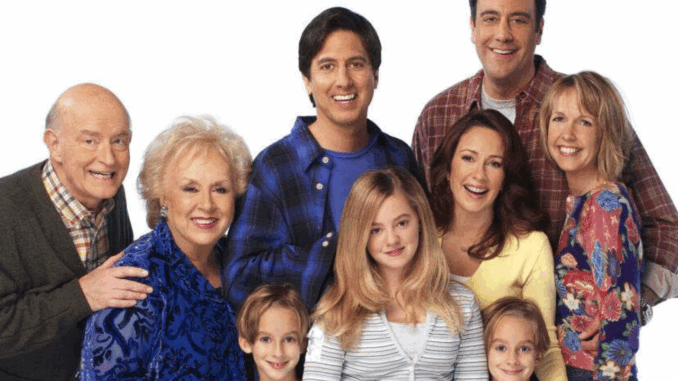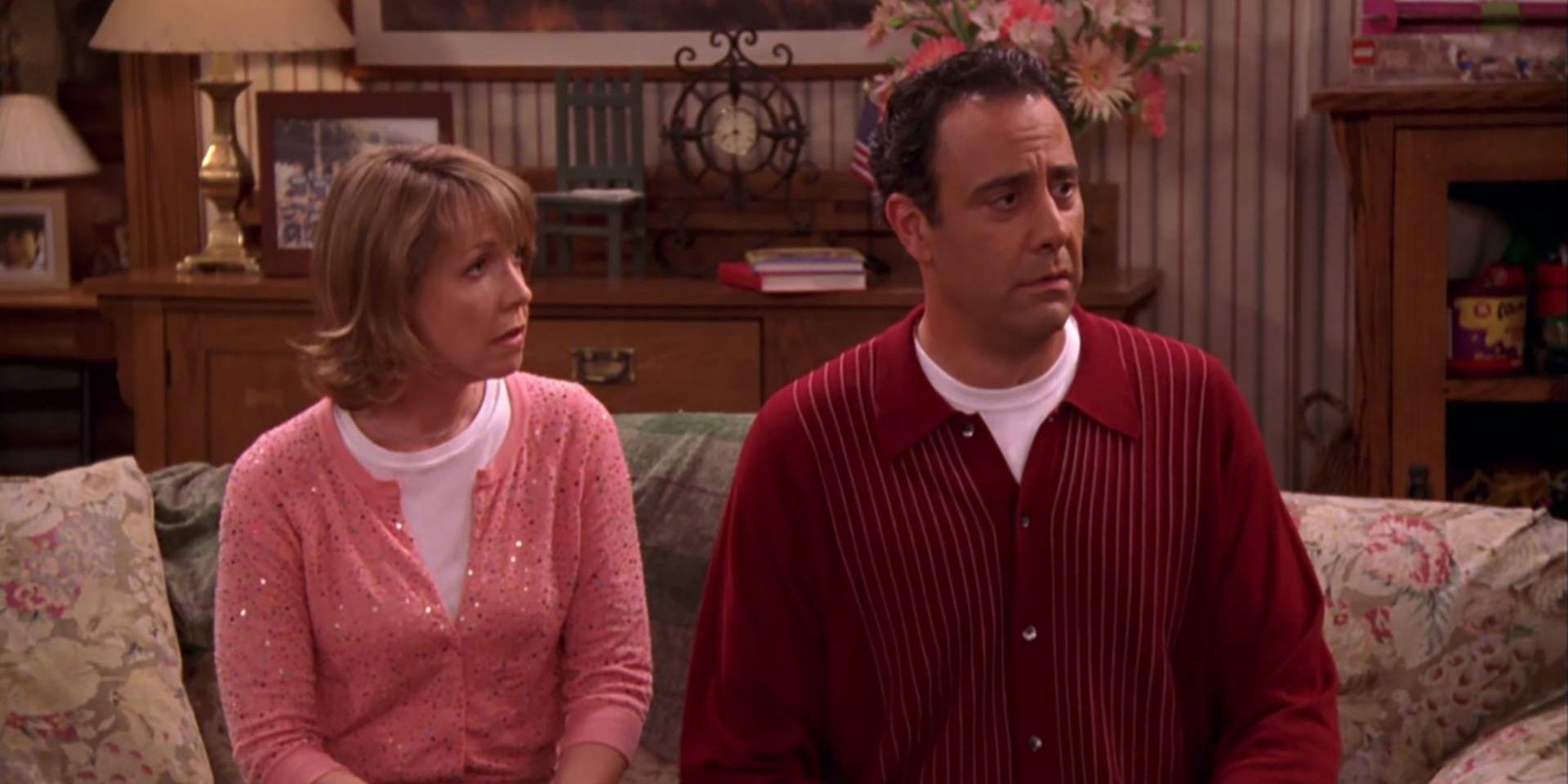
Why does everybody love “Raymond”?
Because its stories and cast make it one of the best, and funniest, sitcoms on TV. Creator Phil Rosenthal talks about the success of his show as it nears its final season.
shows you pass for years on your way to some other channel. Oh, here’s that grouchy family show, you think. Ray Romano. Annoyed wife. Overbearing mother. Loser brother. Sure, it seems mildly amusing, but … What else is on?
Then one day, while you’re waiting for your spaghetti to boil or your laundry to dry, you sit down and watch an entire episode. After the second or third time you’ve laughed out loud, it occurs to you that this show is different from the others. Not only is “Everybody Loves Raymond” much more entertaining and weird than the current batch of family sitcoms on the air, it’s a hell of a lot funnier. Like a strange mix of “The Cosby Show,” “All in the Family” and “Seinfeld,” it unflinchingly exposes its characters’ worst impulses without veering too far from familiar territory.
And while most sitcoms are packed to the brim with shtick that doesn’t suit the characters, punch lines that interrupt the action, and ridiculous situations that are as unbelievable as they are uninteresting, “Everybody Loves Raymond” is grounded in interesting, human stories and incredibly funny but realistic dialogue. When Ray avoids confronting Debra (Patricia Heaton) about her PMS, or Robert (Brad Garrett) tries to win over Amy’s incredibly square parents, the laughs are organic and don’t require exaggeration. Even the kids act like real kids, instead of bouncing in and out, “Full-House”-style, wisecracking and making cute remarks.
More than anything, “Everybody Loves Raymond” is an exploration of the daily trials and tribulations of marriage. The writers expose the ugly underbelly of family life to the harsh light of day, and everyone ends up with a sunburn. Ray and Debra are alternately bitter, annoyed, apathetic or simply resigned to tolerating each other, reflecting the constant struggles of accepting a spouse’s quirks and limitations.
But what would the show’s writers have to say to those idealistic singles who might find such cynicism off-putting? One glimpse of a response is offered when Robert’s fiancie, Amy (Monica Horan), delivers a rousing speech to Ray, Debra and Ray’s parents on the joys of wedlock: “Robert and I are getting married, and I want us to be honest and trusting, and I hope those feelings will only get stronger the longer that we’re together.” The couple exits, and after a stunned silence, Ray says, “Wow.” Debra turns to him and says nostalgically, “Yeah. Remember when we were that stupid?”

Phil Rosenthal, the amiable creator of “Everybody Loves Raymond,” talked to Salon recently about his show’s success as it nears its final season, waxing philosophical on the pursuit of the “hip and edgy” demographic, the joys of Bruce Springsteen, and the overwhelming importance of lunch.
“Everybody Loves Raymond” is so different from the empty slapstick of most of the sitcoms that are on TV right now. How do you do it?
It’s what we call a character-driven sitcom as opposed to a joke-driven sitcom. When we first started in 1996, “Seinfeld” was still on, and “Seinfeld” was a great show. And I always say the only thing that was wrong with “Seinfeld” were all the shows that tried to imitate it. What they thought they were doing were shows about nothing. That’s what they had to imitate: shows about nothing. Shows that talked about comical issues and were very jokey and superficial, and they were all trying to do younger versions of “Seinfeld.” What you wind up with is a Xerox of a Xerox.
I couldn’t have done one of those kinds of shows if I wanted to. The shows I grew up with were “The Honeymooners” and “All in the Family,” “The Mary Tyler Moore Show” and “Taxi.” They were all character-based sitcoms, where the humor comes from character, and the story comes from character and there is a story.
You could argue that “Seinfeld” is somewhat character-driven. It’s a show about nothing, but certain characters do certain kinds of nothing.
Right. Originally, one of the notes I got from one of the studio people was: “I don’t understand the type of show you’re trying to do here.” I said, “I’ll tell you. We’re trying to do a traditional, well-made, classic sitcom.” And he said, “All words we should be avoiding.” And I said, “And what words should we be going for?” and he said, “Hip and edgy.” And I said, “Listen, you got the right guy, because I am hip and edgy.”
Hip and edgy, meaning superficial and irritating.
I guess to you and me, but people in the studios are going for young “demos.” It’s a silly thing; I don’t understand it. You try to do a show for you, and you hope that other people have your sensibility. If you try to hit some idea of what an 18-year-old likes, I think you’re in trouble.
Plus, the thing that stands out about “Everybody Loves Raymond” is that it feels like an honest reflection of real lives. It doesn’t feel like an absurd, imagined thing.
Thank you. We have a couple of rules on the show. Probably the main rule is, “Could this happen?” You want to stretch credibility as far as you can without destroying the reality or the thing that people relate to when they watch the show. You want to take it to the edge but you don’t want to go over that edge. Otherwise you wind up with so many shows that I don’t need to mention. Silly shit happens, and then they have to top themselves because that’s all they have.
